Rayonier purchased its first forest property in Nassau County, Florida, in the late 1930s. Since then, it has had a strong presence in the county. Company leaders reflect on our past and future in Nassau County.
WILDLIGHT, Fla.—Ever since Rayonier bought its first forest property in Nassau County, Florida, in the 1930s, our stories have been intertwined. Together, we have strived to be the best stewards of our community and the land within it.
As Nassau County celebrates its bicentennial this year and Rayonier prepares to celebrate its centennial in 2026, Rayonier leaders reflect on the 87-year history of Rayonier in Nassau and our vision for the company’s future here.
It’s a topic that excites everyone on our team—our voices are warm with pride when we talk about how we helped the community recover from the Great Depression and how we’ve adapted and evolved over the decades.
In 2017, we built our company headquarters at Wildlight, even further solidifying our relationship with the community.
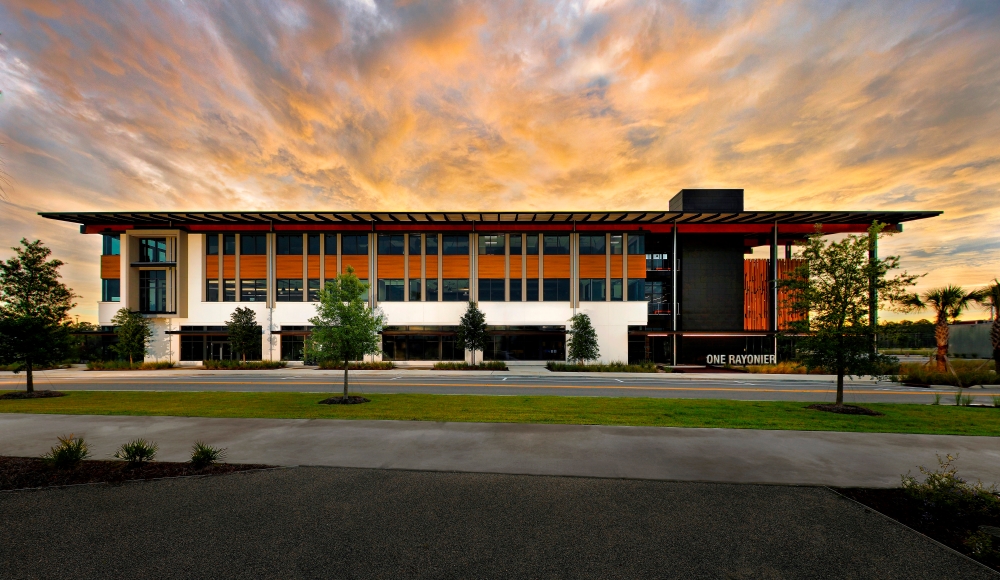
Over the years, a unifying ethic has emerged and only grown stronger: this company, through its leaders and team members, considers itself a corporate citizen of Nassau, with a responsibility and a commitment to contribute to the community’s well-being.
Healthy economic growth since 1937
Mike Bell, Rayonier’s Vice President of Public Affairs, describes our company’s relationship with Nassau County as one built around economic growth and constant reinvention. Mike looks to the past to illustrate how this legacy was built.
When Rayonier first came to Nassau in 1937, the local economy had been devastated by the Great Depression. At that time, the community relied on a small number of agricultural products to survive. When Rayonier built a manufacturing plant on Amelia Island, it diversified Nassau’s economy and created high-paying jobs that strengthened the community.
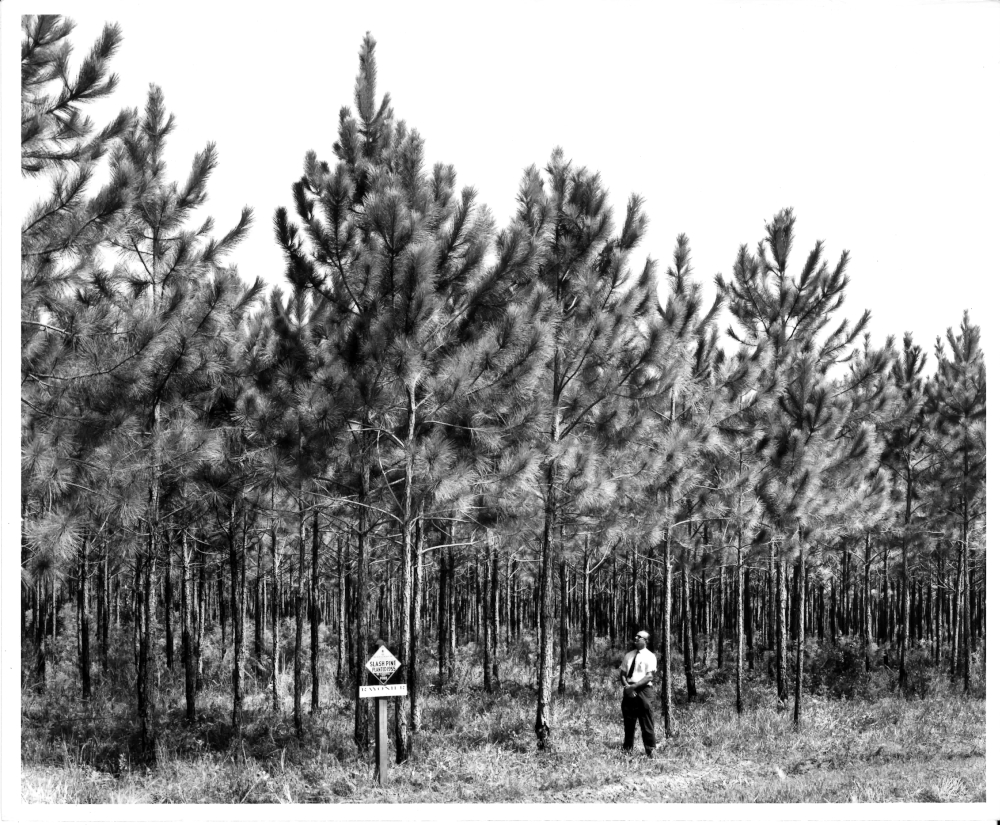
At first, the War Production Board took over the manufacturing plant to help make nitrocellulose, which was used in explosives, bullets, and rocket propellants during World War II. And as in many communities, that assistance in wartime production helped to stabilize the County’s economy.
Later, when Rayonier was able to use the facility as a pulp and paper mill as it had originally intended, the local economy began to flourish. For one thing, those manufacturing jobs were some of the highest-paying jobs in the County. But there was also an indirect economic impact throughout the supply chain.
“Rayonier helped sustain the region because we drew timber supply from a large radius,” says Mike. “That supported a lot of folks—tree growers, loggers, trucking companies—even if they weren’t working at the plant.”
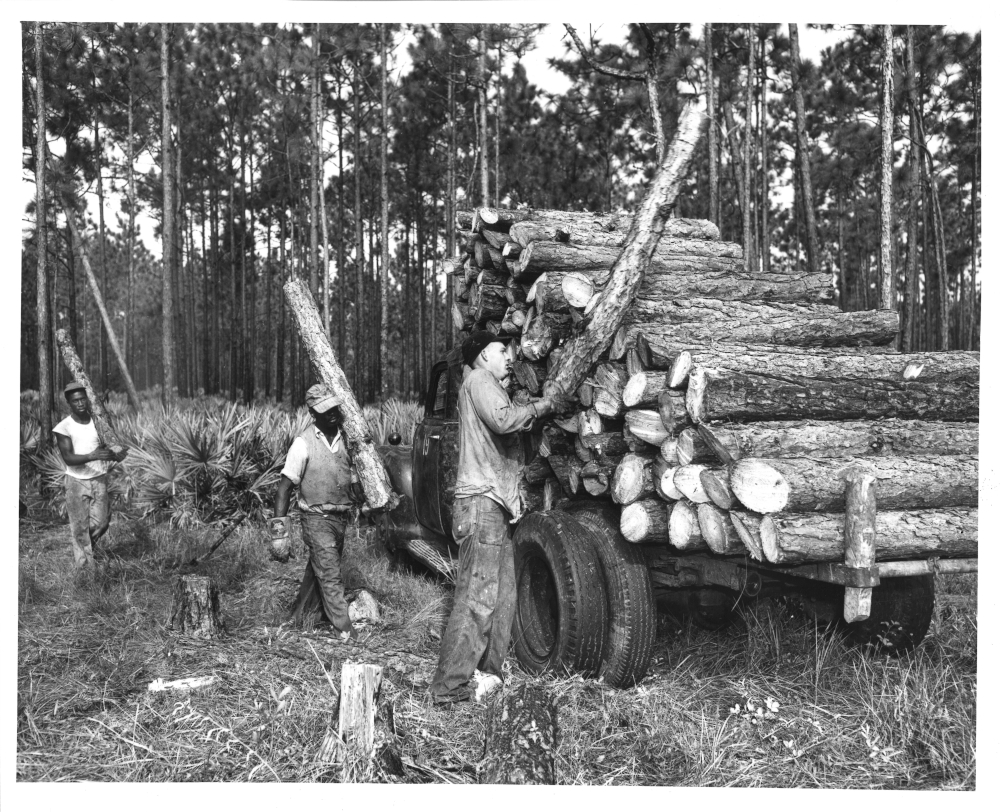
In the 1930s, Rayonier also entered the timber business in the region when we began to buy land throughout Northeast Florida to ensure a steady supply of wood for our mills. We started a cycle that continues today: planting, harvesting and replanting our pine forests to provide a sustainable resource.
“Through our dedicated reforestation efforts, we are now growing our fourth generation of trees on much of our property in Nassau County,” Mike says.
Together, the mills and the well-managed forests helped Nassau County increase its tax base and create a foundation for healthy economic growth.
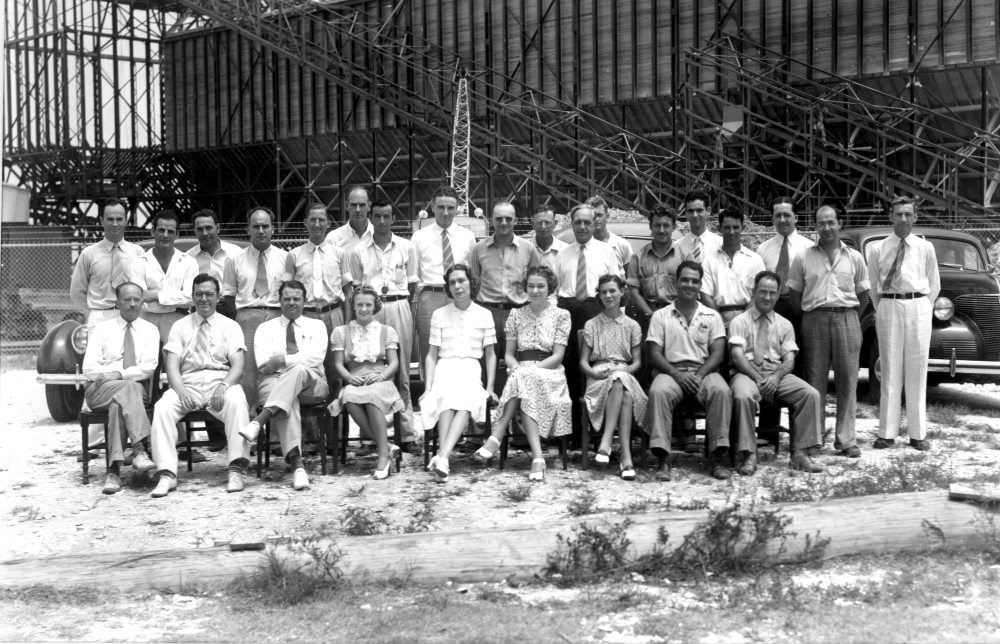
Rayonier has changed over time and now we no longer own manufacturing plants. We spun the pulp mills out into a separate public company now known as RYAM, but those mills are still operating and sustaining the County through taxes and high-paying jobs. They also support the timber industry in the region.
Now, we continue to grow timber, own and operate a real estate subsidiary and are involved in a number of non-timber related businesses on our land base.
“Rayonier is still here because we keep reinventing ourselves,” says Mike.
Reinvention may be in our nature at Rayonier, but certain principles have remained consistent throughout our history. One of these, Mike says, is Rayonier’s legacy of promoting sustainable economic growth in the communities where it operates—and that’s especially true in Nassau County.
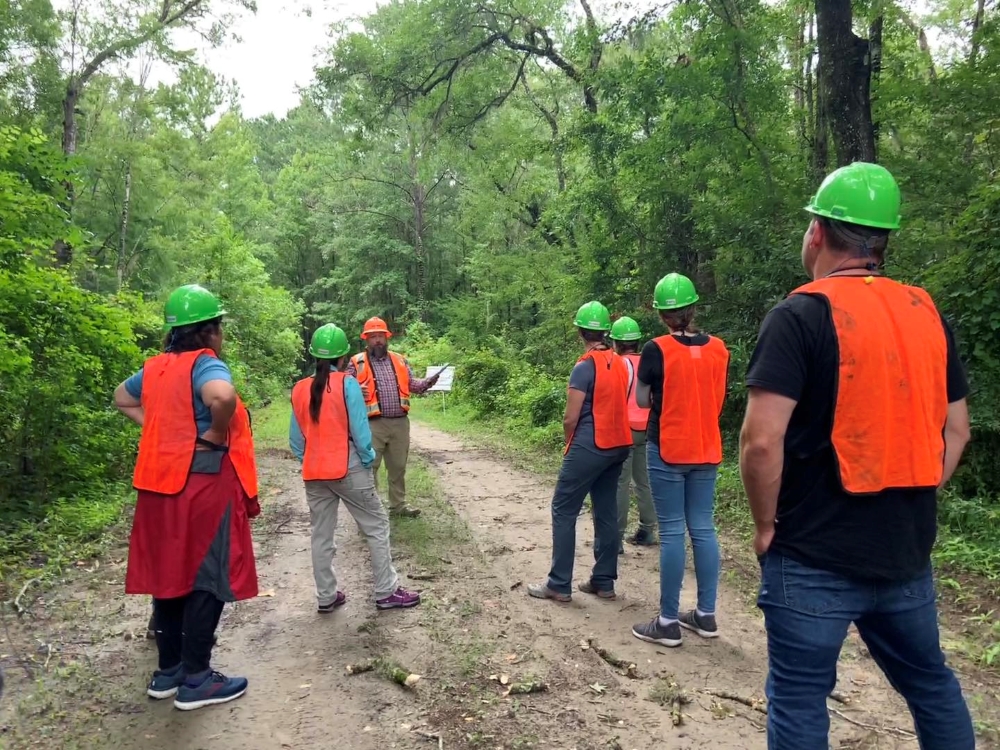
Sustainable forests support Nassau
Director of Operations Jeremy Flood leads our Coastal Resource Unit, which manages timberland in and around Nassau County. He says it can be difficult for people to realize the economic impact forestry continues to have in the region.
“You might not see it when you drive around on the paved roads,” Jeremy says. “But if you take a bird’s eye view of the County, you see mostly forests and Rayonier owns a significant portion of those undeveloped areas.”
Today, we own 121,000 acres in Nassau County, which has roughly 415,000 acres of land altogether. Much of our land is timberland that we manage for a sustainable supply of wood over the long term.
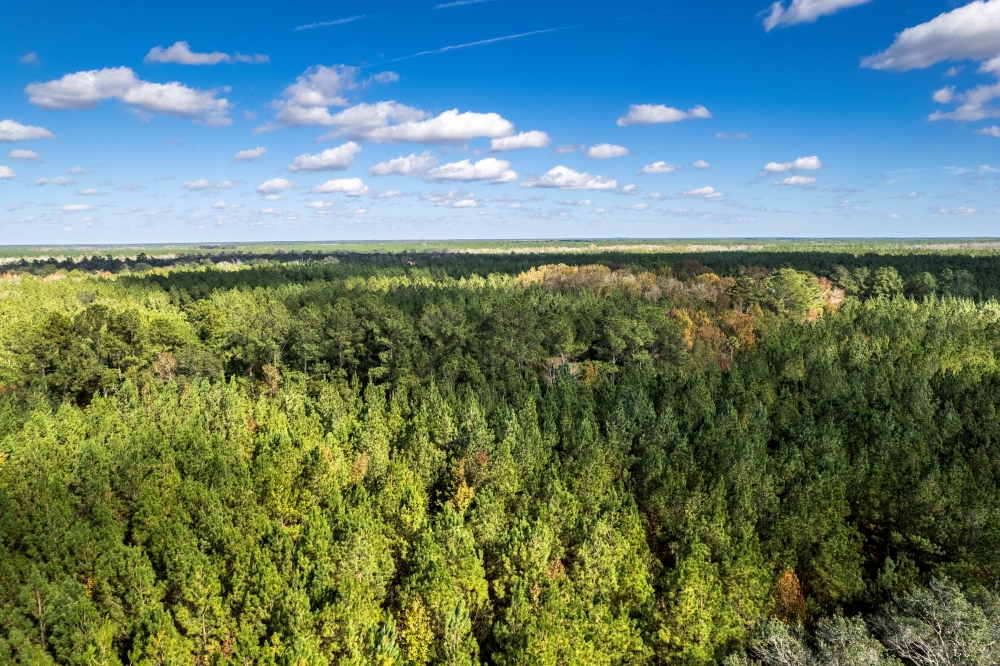
“We’re just now cutting the trees we planted when I started my career,” Jeremy says. “Forestry is unique because it takes that kind of forward thinking to provide for the future.”
Jeremy credits Rayonier with giving him early insight into the industry. His family moved to Nassau County when he was young, and he got to know several Rayonier employees as he joined the community.
“I found forestry in part because I had this influence of Rayonier folks—they were people I respected and looked up to,” he says. “It’s been a rewarding career. In forestry, you’re managing what’s naturally on the landscape, using wisdom and science to organize it and make it efficient.”
Jeremy is proud to be a forester because of the many benefits to natural ecosystems. With modern science-based management practices, our forests provide clean water, clean air and critical wildlife habitat, all while supplying society with important products like lumber, plywood and paper.
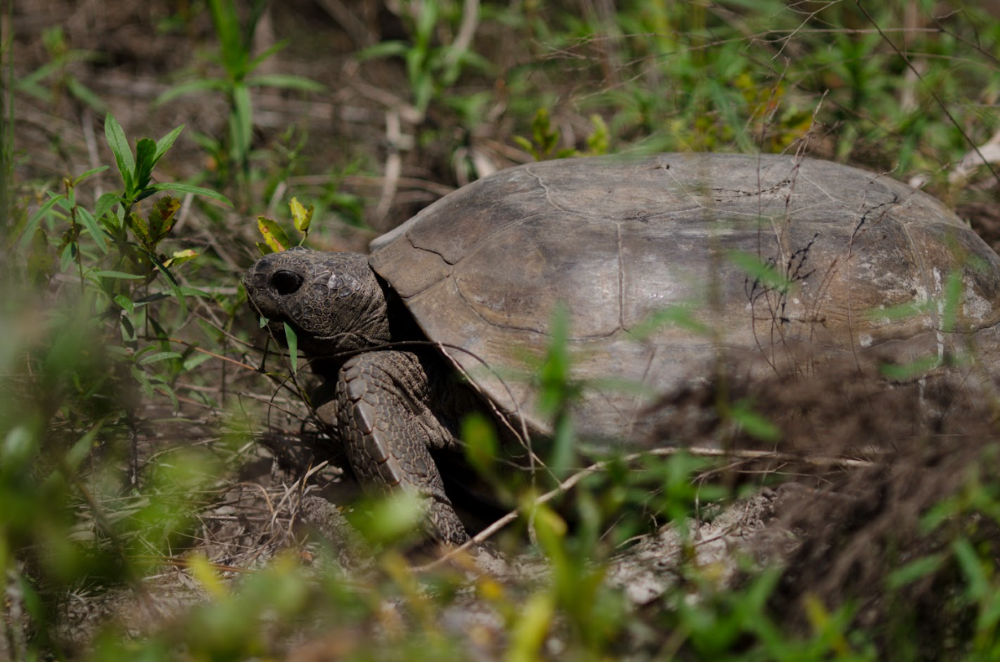
“I hope people see a lot of the good that’s already been done here by Rayonier,” Jeremy says of Nassau County. “And I hope in the future they’ll see the six or eight generations of forestry still happening behind the scenes.”
Some Nassau County residents are already able to see behind the scenes as customers with Rayonier’s Hunting & Recreation Program.
In this program, Rayonier land is open to residents and visitors to Nassau for hunting, fishing, hiking, camping, and foraging. Currently, we have more than 900 customers in Nassau who are accessing our land to enjoy the outdoors with family and friends.
Wildlight: sustainable community development
In 2007, Rayonier’s relationship with Nassau entered a new chapter when the County’s leadership approached our company to establish a public-private partnership, the result of which is the Wildlight development. At that time, population growth was on the horizon and the County wanted to be prepared.
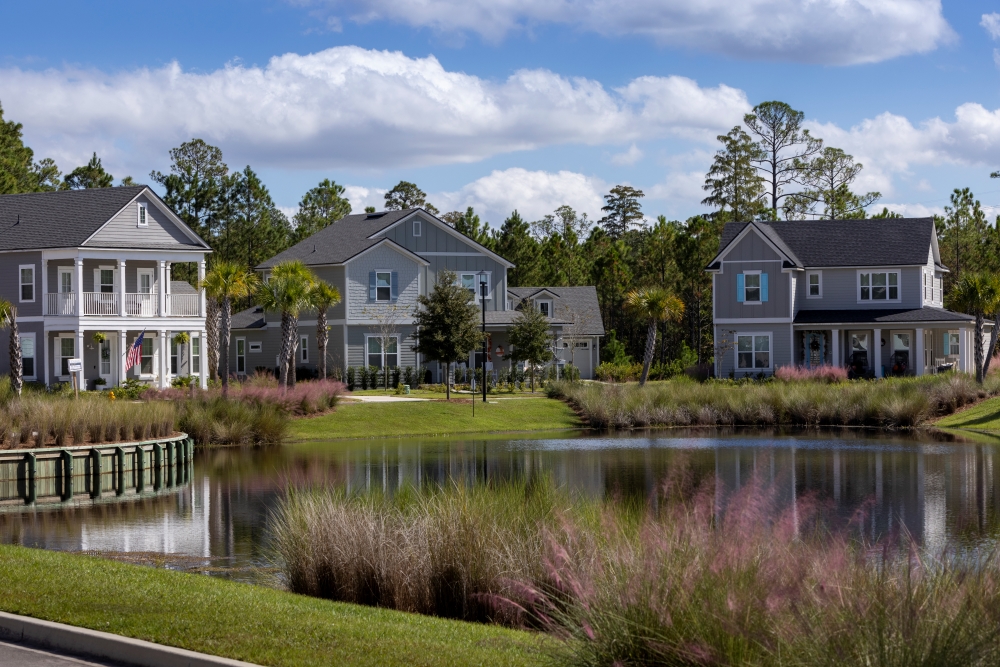
Local leaders didn’t want to sit back and watch as developers capitalized on Nassau’s growth rate, buying up smaller parcels of land and developing them in a haphazard way with no thought to the bigger picture.
Instead, they asked Rayonier, one of the County’s largest landowners, to work with them on a whole-landscape plan to prepare for inevitable population growth. This way, the County could follow a methodical, strategic approach—planning for residential neighborhoods, schools, police stations, parks and more in a logical way.
Rayonier’s leaders were excited to work with the County.
“I’ve been in this business for 30 years and you rarely see this happen in development,” says Chris Corr, Rayonier’s Senior Vice President of Real Estate Development. “It’s uncommon to have the opportunity to think on this larger scale, but because of Rayonier’s land ownership that’s what we’ve been able to do.”
Chris, a Florida native, says the vision for Wildlight is to transition forest land into a healthy, sustainable community. It’s different, he says, from the pattern you see all too often in Florida, where the natural environment is often spoiled in favor of high-density development.
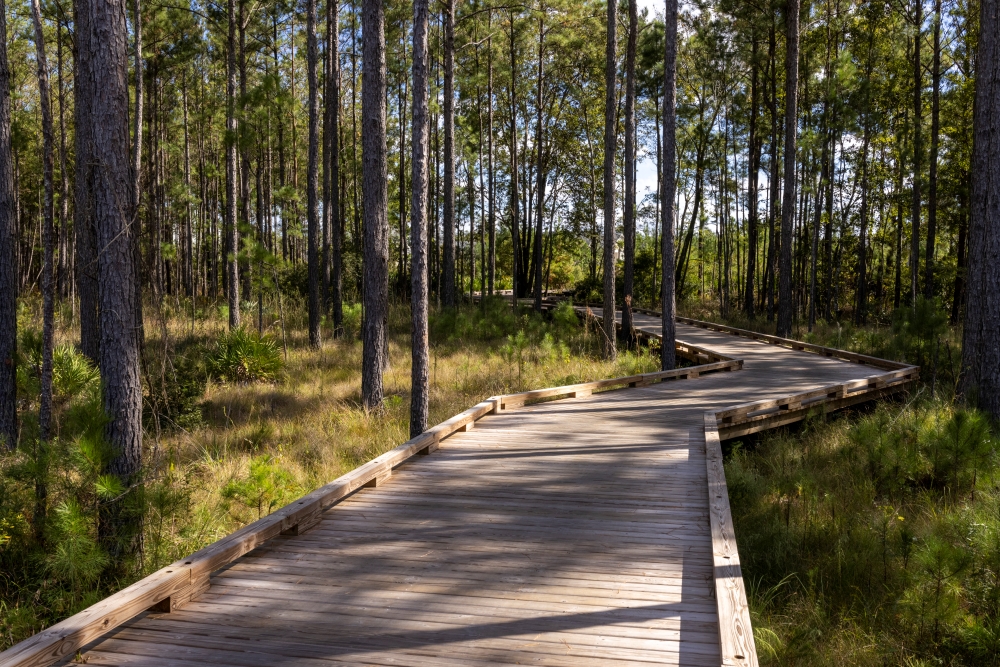
People and communities thrive when they have access to nature and plenty of opportunities for outdoor recreation and exercise. And many people are drawn to Nassau County for its beaches, rivers and forests—so it’s important to preserve the best parts of the community even as it grows.
Chris and his team surveyed the 24,000 acres that would become Wildlight and identified 12,000 acres, including critical wildlife habitat and wetlands, to set aside in conservation easements. These lands will be undeveloped and protected forever, and the easements will be managed by the Conservation Habitat Network and the East Nassau Stewardship District.
Nassau residents and visitors will have access to much of this protected land, including a future park called the Green Ribbon, a 13-mile linear park alongside the St. Marys River.
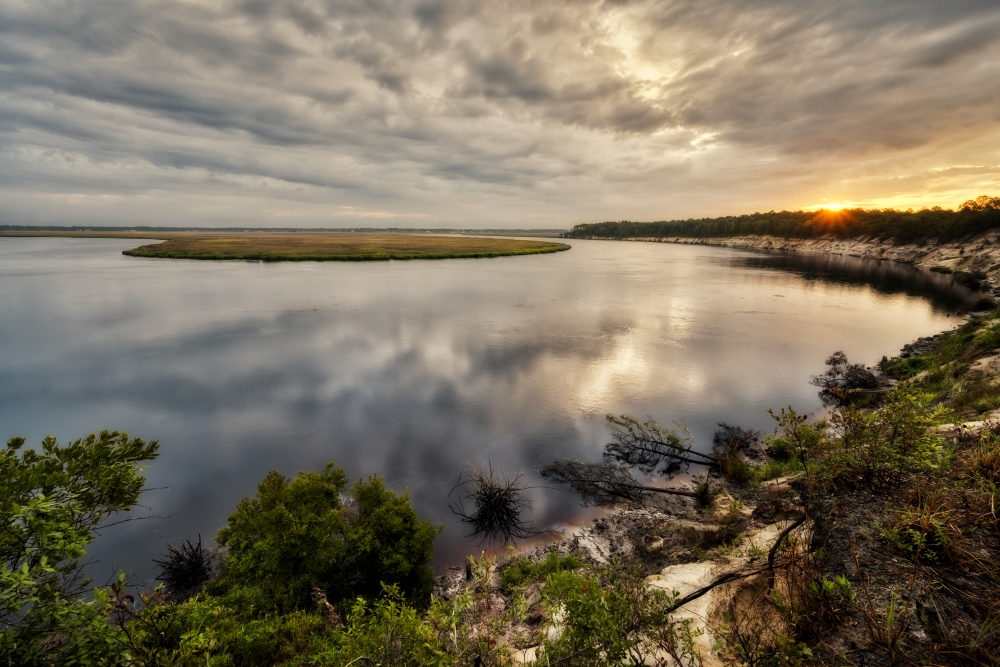
Rayonier is also building a trail network through the conserved areas and a new public boat ramp. There will be lots of opportunities for kayaking, hiking and biking in areas that were previously inaccessible to the public.
As Rayonier continues to reinvent itself, this time as a partner to the County in sustainable community development, its core values remain the same.
“Rayonier has been a steward of land for nearly 100 years with experience across states and countries managing land resources in a sustainable way,” Chris says. “So that ethic is in the heart—the blood stream—of Rayonier. We get to bring that to community development and it’s a real thing.” To see future plans for Wildlight’s growth in the county, view its Next Chapter website here.
Rural Nassau and stewardship
In planning for the future, Nassau County’s leaders and residents have said it’s also important to preserve the community’s rural roots. Western Nassau has always been more rural than the rest of the County, with ranchettes, farms and forest land. This culture, they say, is important to Nassau and they don’t want development pressure to override this rich heritage.
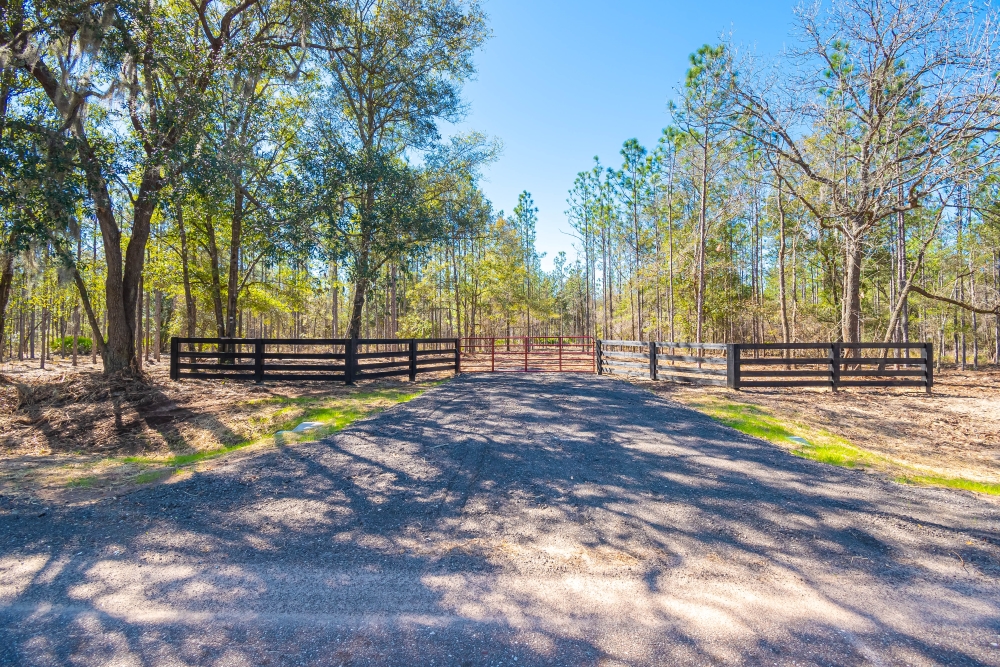
Rayonier’s rural land sales subsidiary, Raydient Rural, is committed to helping with this vision. We are turning forest land into small homesteads where land buyers can live rural lifestyles.
Jason Shearer, Raydient’s Senior Manager of Development and Sales, says that growing up rural helped him find his way to a career in forestry, where he was able to serve as a steward of the land.
“The people we’re providing homesteads for are growing up much like I did—on four or five acres, knowing where their food comes from and participating in 4-H and FFA,” Jason says. “We’re creating places where future stewards can be cultivated.”
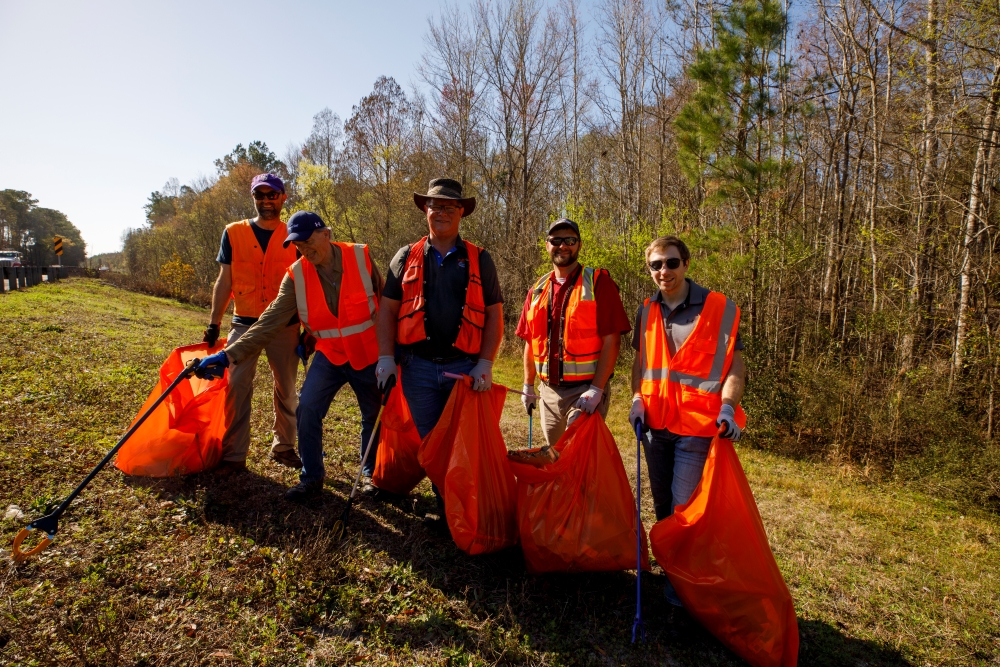
Community service in Nassau
Mike Bell, our Vice President of Public Affairs, says that Rayonier’s philanthropic work in Nassau is a natural outgrowth of our company’s core values.
“Our stewardship ethic goes beyond environmental stewardship. It’s a common thread that permeates everything we’ve done,” Mike says. “We’ve always thought about what’s best for our community and what makes it stronger.”
As a practical matter, Mike says this is important for business reasons. The health of our company is tied to the well-being of the community. But it’s also something that Rayonier team members are passionate about. Many give their time freely to local organizations, volunteering as well as sitting on boards and committees and sharing their professional expertise. Mike focuses his own efforts on education: he sits on the District Board of Trustees for the Florida State College at Jacksonville (FSCJ), a community college with five campuses in the area.
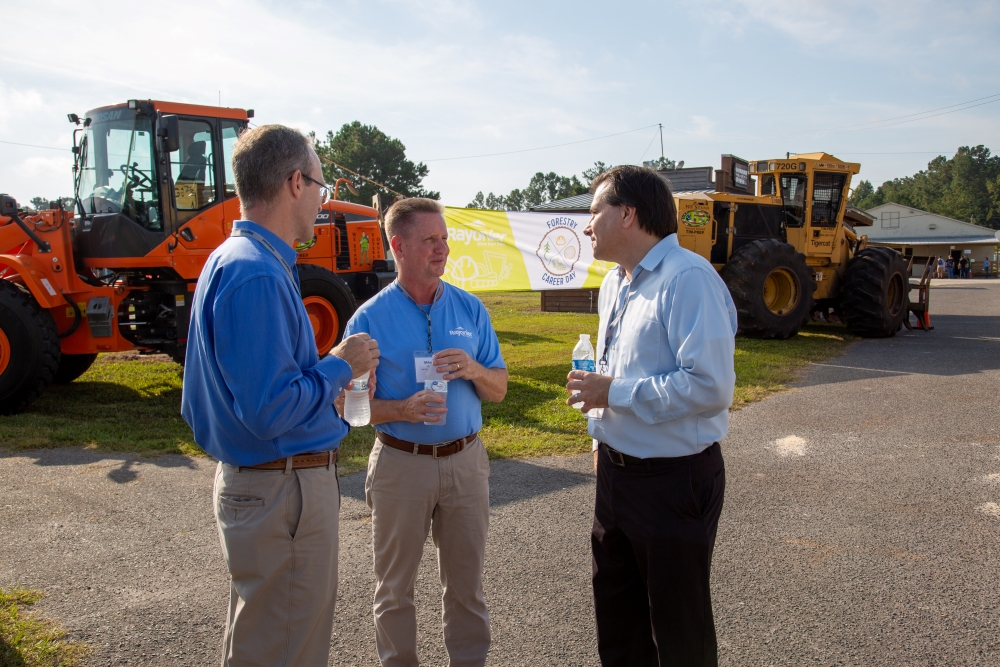
Despite Nassau County’s A-rated K-12 school district, he says that about 35 percent of local students pursue no post-secondary education. Mike believes every student needs a plan for the future and FSCJ provides an attainable option.
“FSCJ is incredibly affordable and it’s good for students who don’t know what they want to do,” he says. “It’s important for the future prosperity of the County. It doesn’t bode well for the County if we can’t get those kids into a career with a living wage.”
In addition to serving on boards and committees, Rayonier gives back to Nassau through our Community Fund, which donates annually to local organizations. In the past five years, Rayonier has given, on average, $129,000 per year, concentrating the majority of funding in the following areas:
- Natural Resources & Environmental Education
- Education and Youth Development
- Health/Hospital, Civic and Community Growth
Kim Sartor, our Community Affairs Manager, lights up when she talks about her work with local organizations. One project she loves to talk about is the work Rayonier has done with Family Support Services of Northeast Florida.
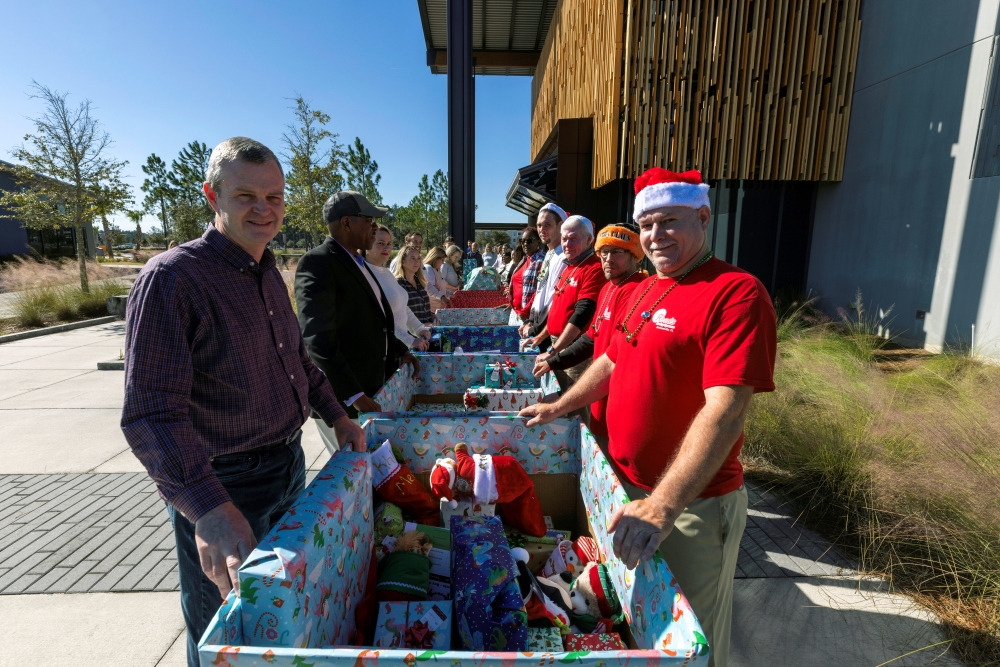
Family Support Services is a community based care agency focused on improving circumstances and outcomes for families. FSS provides safe homes for abused and neglected children and teens through foster care and finds forever families for children through adoption.
Rayonier has teamed up with Family Support Services volunteers to renovate their “Bright Spaces” facility, which provides a safe, therapeutic, welcoming environment for supervised visitation with children in care in Nassau County.
Our employees also help with the annual Angel Tree Toy Drive for Family Support Services of Nassau, buying and wrapping gifts for the children to open during holiday visits with their families.
“If we want to be successful as a company, we have to take care of our community,” Kim says. “We’re funding programs that will grow our children and their children. In 10-15 years, I want to be retired and be assured our community is still thriving and growing.”
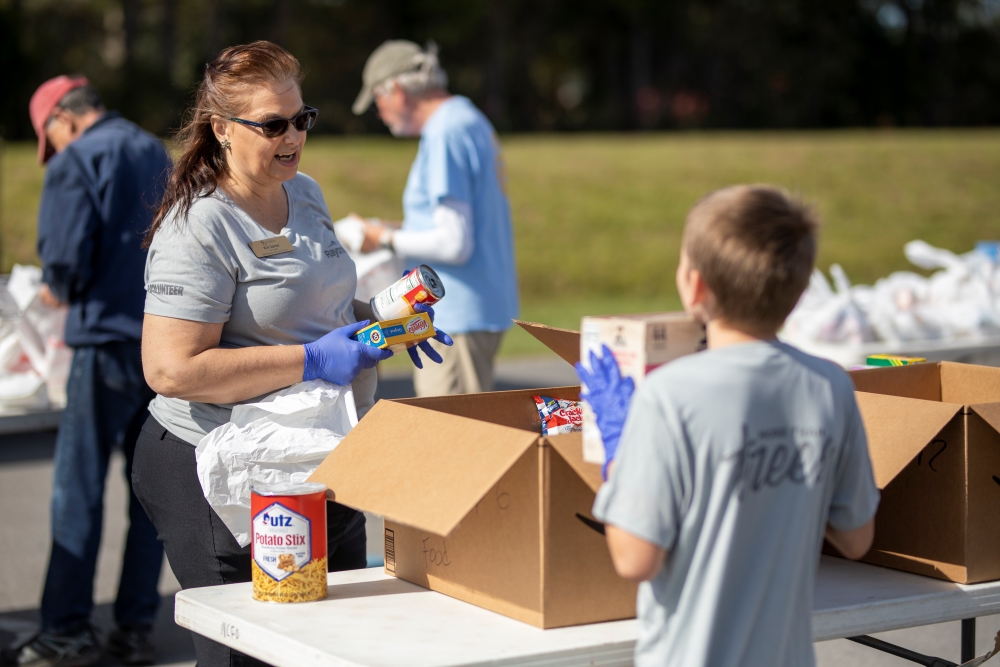
Legacy and vision
Since 1937, our company has grown alongside Nassau County and we couldn’t be more proud to call this community our home.
Of our 181 local employees, 95 live here in the County, and 86 commute from surrounding communities.
Our perspective is perfectly summed up in these thoughts from Wes Hinton, Vice President of Wildlight at Rayonier:
“Everyone on our team cares deeply about what happens here,” he says. “Our work is a point of pride and there is excitement around it. I grew up here and my daughter is now the sixth generation in my family to be raised in Nassau County. I took this job because I want to have a say in how this community develops over time. It’s our forever home.”



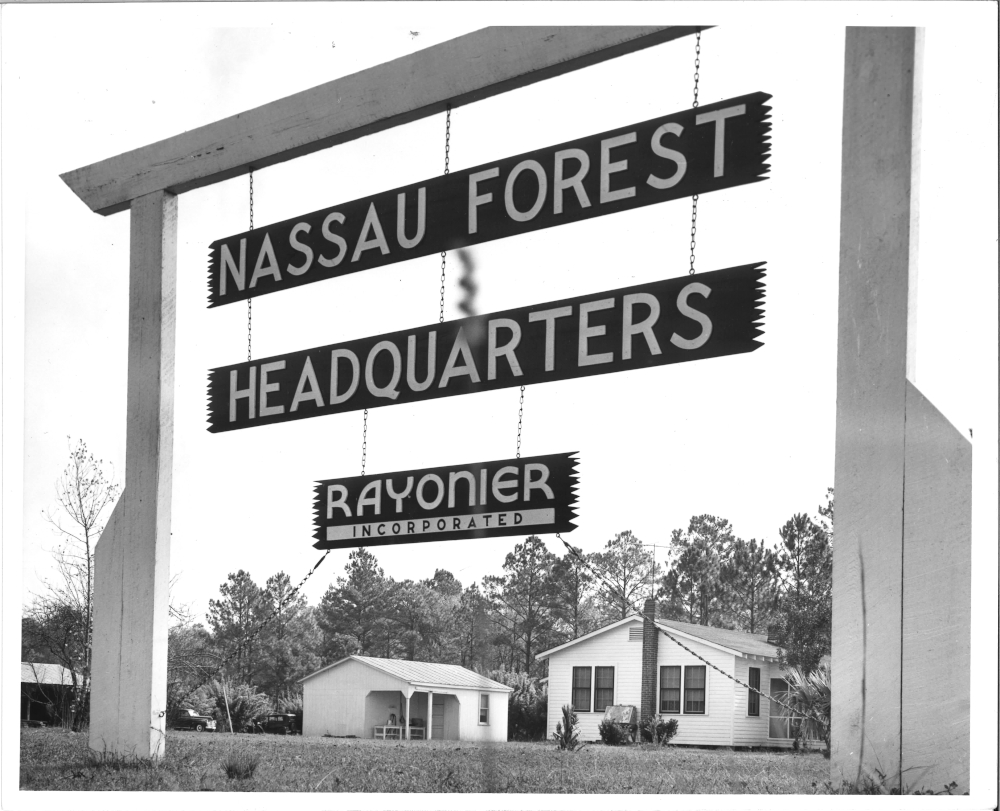
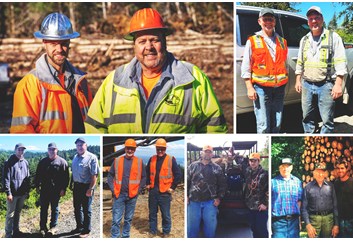


Leave a Comment